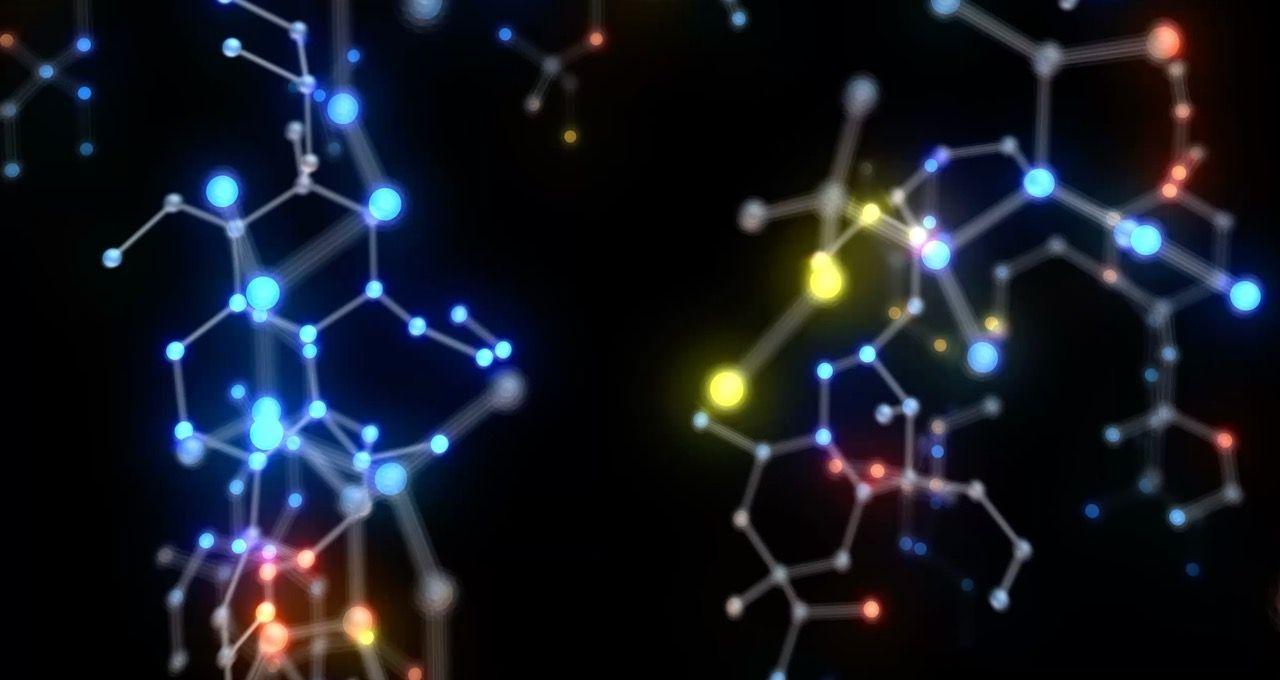Eli Lilly and Nvidia Partner to Build Pharmaceutical Industry's Most Powerful AI Supercomputer for Drug Discovery
4 Sources
4 Sources
[1]
Eli Lilly, Nvidia partner to build supercomputer, AI factory for drug discovery and development
Lilly Chair and CEO Dave Ricks speaks during a press conference for Eli Lilly and Company in Houston, Texas, U.S., Sept. 23, 2025. Eli Lilly and Nvidia are partnering to build what they call the pharmaceutical industry's "most powerful" supercomputer and so-called AI factory to help accelerate drug discovery and development across the sector, the companies announced Tuesday. It's the latest stride by Nvidia and the pharmaceutical industry to harness AI to help shorten the time it takes to bring cures to patients, while reducing costs at every stage of drug discovery and development. The process typically takes about 10 years on average from dosing the first human with a drug to its launch on the market, said Diogo Rau, Eli Lilly's chief information and digital officer, in an interview. "The things that we're talking about discovering with this kind of power that we have right now, we're really going to see those benefits in 2030," Rau said. Eli Lilly expects to complete the buildout of the supercomputer and AI factory in December. They will go online in January. The industry's efforts to use AI to bring medicines to people faster are still in the early stages. There are no drugs on the market designed using AI, but progress is evident in the number of AI-discovered drugs entering clinical trials, recent AI-focused investments and partnerships among drugmakers. Eli Lilly will own and operate the supercomputer, which will be powered by more than 1,000 Blackwell Ultra GPUs - a newer family of chips from Nvidia - connected on a unified, high-speed network. The supercomputer will power the AI factory, a specialized computing infrastructure that will develop, train and deploy AI models at scale for drug discovery and development. The supercomputer "is really a novel scientific instrument. It's like an enormous microscope for biologists," said Eli Lilly's Chief AI Officer Thomas Fuchs. "It really allows us to do things we couldn't do before at that enormous scale. Scientists will be able to train AI models on millions of experiments to test potential medicines, "dramatically expanding the scope and sophistication" of drug discovery, according to a release from Eli Lilly. While finding new drugs isn't the only focus of the new tools, it is "where the big opportunity is," said Rau. "We're hopeful that we'll be able to discover new molecules that we never would have with humans alone," he said. Several AI models will be available on Lilly TuneLab, an AI and machine learning platform that allows biotech companies to access drug discovery models that Eli Lilly has trained on years of its proprietary research. That data is worth $1 billion. Eli Lilly launched that platform in September as a way to expand access to drug discovery tools across the sector. "It's really powerful to be able to give that extra starting point to these startups that, you know, otherwise could take a couple of years burning their capital to get to that point," said Kimberly Powell, Nvidia's vice president of health care, adding that the company is "delighted to participate" in that effort. In exchange for access to the AI models, biotech companies are expected to contribute some of their own research and data to help train them, Rau noted. The TuneLab platform employs so-called federated learning, which means that companies can take advantage of Lilly's AI models without either side directly sharing data. Eli Lilly also plans to use the supercomputer to shorten drug development and help get treatments to people faster. The company said new scientific AI agents can support researchers, and advanced medical imaging can give scientists a clearer view of how diseases progress and help them develop new biomarkers -- a measurable sign of a biological process or condition -- for personalized care. "We would actually like to deliver on that promise of precision medicine," Powell said. "Without an AI infrastructure and foundation, we'll never get there, right? So we're doing all of the necessary building, and now we're seeing this true lift off, and Lilly is an exact example of that." Precision medicine is an approach that tailors disease prevention and treatment according to differences in a person's genes, environments, and lifestyles.
[2]
Lilly Deploys World's Largest, Most Powerful AI Factory for Drug Discovery Using NVIDIA Blackwell-Based DGX SuperPOD
The AI factory will be used to train large scale biomedical foundation and frontier models for drug discovery and development. Select models will be made available on Lilly TuneLab -- an AI and machine learning platform that provides biotech companies with access to drug discovery models built on $1 billion worth of Lilly's proprietary data. TuneLab is now the first drug discovery platform to offer Lilly models and NVIDIA Clara open foundation models for healthcare and life sciences, further expanding AI access for the biotech ecosystem. TuneLab uses a federated learning infrastructure built on NVIDIA FLARE, which enables biotechs to tap into powerful proprietary AI models while keeping their own data private and separate from other users. As more companies participate, the models improve, benefitting all users. "Our foundation models are spawning new possibilities for our chemists, helping them uncover new motifs and configurations of atoms that were out of reach with traditional methods," said Thomas Fuchs, chief AI officer at Lilly. "AI gives us the means to accelerate progress toward both developing and delivering better, more personalized and targeted medicines."
[3]
Eli Lilly and Nvidia team up to build an AI supercomputer dedicated to drug discovery
On Tuesday Eli Lilly and Nvidia announced a strategic partnership to create the most powerful supercomputer ever designed in the pharmaceutical industry, as well as an "artificial intelligence factory" to accelerate the discovery and development of new treatments. The project, which is expected to be finalized in December and operational in January, will be based on over 1,000 Nvidia Blackwell Ultra GPUs interconnected within an infrastructure operated by Eli Lilly. This aims to reduce the time and cost of the drug development cycle, currently estimated at ten years between initial clinical trials and commercialization. Nvidia closed up 5%, while Eli Lilly closed down almost 1%. According to Eli Lilly, this infrastructure will enable millions of virtual experiments to be conducted in parallel and new molecules to be identified using large-scale AI models. "This supercomputer is a unique scientific instrument, a giant microscope for biologists," explained Thomas Fuchs, the group's AI director. The initiative is part of a broader open strategy with the Lilly TuneLab platform, launched in September, which offers biotech companies access to AI models based on several years of research and a billion dollars' worth of proprietary data. This project marks a key step in the convergence of technology and healthcare. Eli Lilly plans to use this computing power not only for drug discovery, but also to optimize clinical trials and develop precision medicine. "Without a robust AI infrastructure, personalized medicine cannot become a reality," said Kimberly Powell, vice president of healthcare at Nvidia. Through this alliance, the two companies intend to make artificial intelligence a major lever for transforming biomedical research and accelerating access to treatments tailored to each patient.
[4]
Lilly partners with Nvidia on AI supercomputer to speed up drug development
(Reuters) -Eli Lilly said on Tuesday it was collaborating with Nvidia to build a supercomputer to help with drug discovery and shorten development cycles, getting medicines to people faster. Using the supercomputer, scientists at Lilly will be able to train AI models on millions of experiments to test potential medicines, expanding the scope of drug discovery efforts, the company said. A number of these proprietary AI models will be available on Lilly TuneLab, a federated artificial-intelligence and machine-learning platform that allows biotech companies access to drug discovery models trained on years of its research data. The federated model is a privacy-preserving approach that enables biotechs to tap into Lilly's AI models without directly exposing either their or Lilly's proprietary data. Beyond discovery, Lilly plans to leverage the supercomputer to shorten drug development cycles. Additional applications include manufacturing, medical imaging and enterprise AI agents, Lilly said. Drug developers are increasingly adopting AI technologies for discovery and safety testing to get faster and cheaper results, in line with the U.S. Food and Drug Administration's push to reduce animal testing in the near future. "Lilly is shifting from using AI as a tool to embracing it as a scientific collaborator," said Thomas Fuchs, senior vice-president and chief AI officer. Earlier in the year, Jefferies analysts had pegged AI-related research and development spending to reach between $30 billion and $40 billion by 2040. The supercomputer, to be owned and operated by Lilly, is an Nvidia DGX SuperPOD with DGX B300 systems. (Reporting by Sneha S K in Bengaluru; Editing by Pooja Desai)
Share
Share
Copy Link
Eli Lilly and Nvidia are collaborating to create the pharmaceutical industry's most powerful supercomputer and AI factory, powered by over 1,000 Blackwell Ultra GPUs. The system aims to accelerate drug discovery and development, reducing the typical 10-year timeline from clinical trials to market launch.
Revolutionary Partnership in Pharmaceutical AI
Eli Lilly and Nvidia have announced a groundbreaking partnership to construct what they describe as the pharmaceutical industry's most powerful supercomputer and AI factory, designed specifically to accelerate drug discovery and development
1
. The collaboration represents a significant milestone in the convergence of artificial intelligence and healthcare, with the potential to transform how new medicines are discovered and brought to market.
Source: Market Screener
The supercomputer will be powered by more than 1,000 Blackwell Ultra GPUs from Nvidia, connected through a unified, high-speed network
1
. Eli Lilly expects to complete the buildout by December, with the system going online in January1
.Addressing the Drug Development Timeline Challenge
The pharmaceutical industry faces a significant challenge in bringing new treatments to patients, with the typical drug development process taking approximately 10 years from the first human dosing to market launch
1
. Diogo Rau, Eli Lilly's chief information and digital officer, emphasized that the benefits of this new computing power are expected to materialize by 20301
.The AI factory will enable scientists to train AI models on millions of experiments to test potential medicines, dramatically expanding the scope and sophistication of drug discovery efforts
1
. Thomas Fuchs, Eli Lilly's Chief AI Officer, described the supercomputer as "a novel scientific instrument" and "an enormous microscope for biologists" that allows researchers to accomplish tasks at an unprecedented scale1
.
Source: NVIDIA
The Lilly TuneLab Platform and Open Collaboration
A key component of this initiative is the Lilly TuneLab platform, launched in September as an AI and machine learning platform that provides biotech companies with access to drug discovery models
1
. These models are built on years of Eli Lilly's proprietary research data, valued at $1 billion2
.The platform employs federated learning infrastructure built on NVIDIA FLARE, which enables biotechnology companies to access powerful proprietary AI models while maintaining data privacy
2
. This approach allows companies to benefit from Lilly's AI models without directly sharing their own proprietary data4
.Related Stories
Beyond Drug Discovery: Precision Medicine and Clinical Applications
The supercomputer's applications extend beyond drug discovery to encompass drug development optimization and precision medicine initiatives
1
. The system will support advanced medical imaging capabilities, giving scientists clearer insights into disease progression and helping develop new biomarkers for personalized care1
.Kimberly Powell, Nvidia's vice president of health care, emphasized that without robust AI infrastructure, personalized medicine cannot become a reality
3
. The partnership aims to make precision medicine a tangible reality by tailoring disease prevention and treatment according to individual genetic, environmental, and lifestyle factors1
.Industry Impact and Future Outlook
This collaboration reflects a broader industry trend toward AI adoption in pharmaceutical research and development. Drug developers are increasingly embracing AI technologies for discovery and safety testing to achieve faster and more cost-effective results
4
. Jefferies analysts have projected that AI-related research and development spending could reach between $30 billion and $40 billion by 20404
.While no drugs designed using AI are currently on the market, progress is evident in the increasing number of AI-discovered drugs entering clinical trials and the growing number of AI-focused investments and partnerships among pharmaceutical companies
1
. The Eli Lilly-Nvidia partnership represents a significant step toward realizing AI's potential in transforming biomedical research and accelerating patient access to innovative treatments.References
Summarized by
Navi
[1]
[3]
[4]
Related Stories
Recent Highlights
1
Google Gemini 3.1 Pro doubles reasoning score, beats rivals in key AI benchmarks
Technology

2
Meta strikes up to $100 billion AI chips deal with AMD, could acquire 10% stake in chipmaker
Technology

3
Pentagon threatens Anthropic with supply chain risk label over AI safeguards for military use
Policy and Regulation








